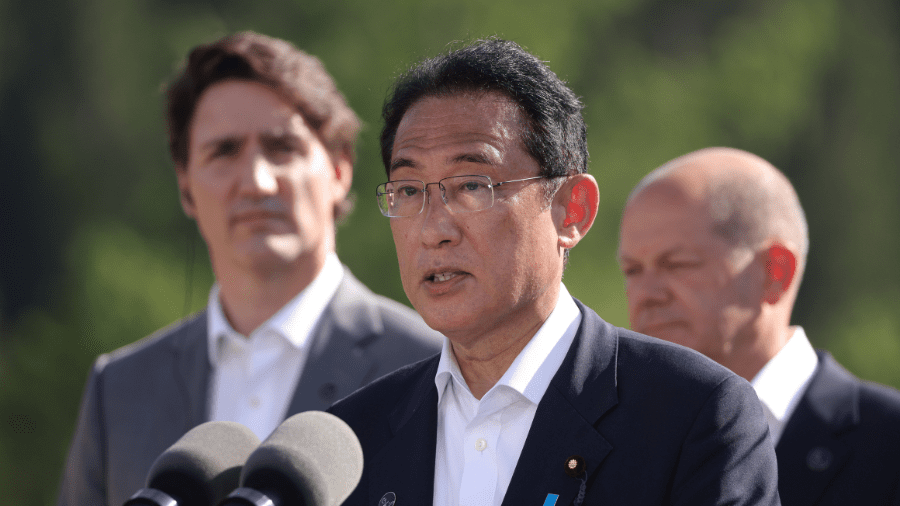This article originally appeared in the Ottawa Citizen.
By Jonathan Berkshire Miller and Marie Ascencio, August 30, 2022
As an increasingly isolated Russia continues to weaponize its oil and gas reserves, rattling fragile markets and fuelling inflation in a global economy still grappling with a pandemic, many governments are scrambling to find new secure energy providers.
Illustrating this in real time, Canadians were intrigued to see German Chancellor Olaf Scholz personally visit Canada — with our conspicuous natural resource wealth — last week to pursue such a relationship.
But there is another global partnership that the federal government should also be exploring with great urgency. Strategically vital but resource-poor Japan sits amongst the long list of countries affected by Russia’s energy coercion. With a long history of peaceful diplomatic and trade relations, a shared vision of a free and open Indo-Pacific, and respect for the international order, Canada and Japan should work closely together to prevent energy from being weaponized in the future.
According to Japan’s External Trade Organization, Russia accounts for about 3.6 per cent of Japan’s crude oil and 8.8 per cent of liquified natural gas (LNG) imports. If these numbers suggest a minor dependence on Russian energy, it is by no means insignificant.
Japan imports Russian LNG mainly under long-term contracts from Sakhalin-2, one of the world’s largest integrated, export-oriented oil and gas projects. Recently, however, the Kremlin announced that it would seize control of Sakhalin-2, potentially forcing out foreign investors. While Tokyo has urged Japanese trading houses Mitsui & Co. and Mitsubishi to maintain their stakes in the project, Russia has not yet set the terms that would allow the Japanese stakeholders to remain involved.
Japan’s commitment to maintain energy interests in Russia is a contradiction to its initial response to the invasion of Ukraine. Initially joining its G7 allies by imposing export controls and banning Russian coal imports, Prime Minister Fumio Kishida recently acknowledged that the need to maintain stable energy supplies has prevented Japan from cutting all ties with Moscow.
Japan’s energy predicament offers an opportunity to work with Canada to diversify the country’s energy supplies, lead the global move away from Russian oil and gas dependency, and move towards cleaner and renewable sources. Although Canada cannot entirely replace Russian world energy supplies, it can help Japan and its allies in the Indo-Pacific through the export of renewables and the world’s most responsibly produced LNG.
To this aim, Japan needs to push the federal government to accelerate the development and export of its own massive resources, and Canada needs strong leadership and action to attract investment back to its energy industry.
Canada is currently the world’s fifth-largest producer of oil and the fourth-largest producer of natural gas. Both Canada and Japan are global leaders in hydrogen energy innovation and both have already released hydrogen strategies to support growth and development of the hydrogen sector.
While it is not yet entirely clear how quickly Canada can ramp up its hydrogen production, plenty of opportunities exist for increased trade and investment between Canada and Japan, some of which are already in place. Japan’s Oil, Gas and Metals National Corporation (JOGMEC) has already signed an agreement with Alberta to promote further cooperation in hydrogen and fuel ammonia production, aiming to contribute to the supply of clean energy to Japan and other Asian markets.
Japan’s Mitsubishi and Shell Canada have also made progress in their plans to collaborate on hydrogen plans in Alberta and British Columbia, with the two companies having signed a memorandum of understanding in 2021. Such collaboration could see the delivery of made-in-Canada hydrogen to Japan in the late 2020s, a move that would support both countries’ commitment to reach net-zero emissions by 2050 and lead the move away from Russian energy.
Russia’s decision to wage a war in Ukraine was a blatant violation of the international rules-based order. Western allies in NATO and the G7 must work together against the Kremlin’s coercive use of energy resources. Canada’s energy stocks could significantly help the West maintain Moscow’s economic isolation by relieving some of our allies’ dependence on Russian energy.
To this end, it is imperative that Canada and Japan work in tandem to help Tokyo relinquish its investments in Russian oil and gas projects. It is not only the right thing to do; it is in everyone’s long-term national interest.
Jonathan Berkshire Miller is director and senior fellow of the Indo-Pacific program at the Macdonald Laurier Institute. Marie Ascencio is an intern with the Macdonald Laurier Institute.






